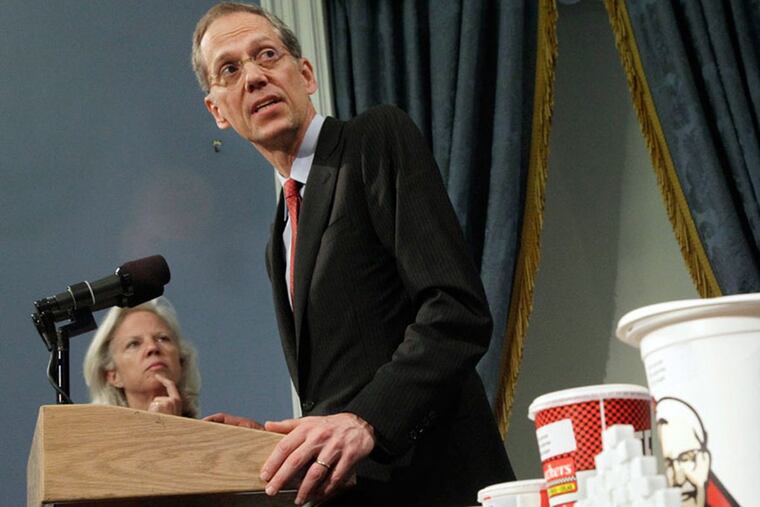Philly health commissioner: 'We physicians are today's gateway drug dealers'
That fact is deeply upsetting, but the opioid crisis won't end until we acknowledge it and change our ways.

It's time to own up: We physicians are today's gateway drug dealers. That fact is deeply upsetting, but the opioid crisis won't end until we acknowledge it and change our ways.
Last year, about 64,000 people in the United States died of drug overdose, according to the Centers for Disease Control and Prevention (CDC). That's more than died of AIDS during that epidemic's worst. This year in Philadelphia, we are on track for about 1,200 overdose deaths — a statistic that has quadrupled in the last 10 years. The number is so large that the Philadelphia medical examiner had to hire another forensic pathologist just to handle the extra autopsies. Although we have always had a drug problem in this country, this parade of death represents something entirely new.
Most of the overdose deaths in recent years involve injecting such opioids as heroin or fentanyl, but the majority of those people started with pills. And the main source of those pills? Doctors.
How on earth did we get here? The fundamental change began in the 1990s, when pharmaceutical companies told doctors – falsely — that opioids were safe when taken for common aches and pains. Doctors, who had previously avoided these dangerous drugs, began writing prescriptions for common ailments such as lower back pain and sprained ankles. Although a few doctors became "pill mills" who sold prescriptions to anyone with the cash to pay, most honestly believed they were fulfilling their calling by relieving their patients' suffering.
But we now know just how addictive these pills are. According to a study by the CDC, of patients given 30 days of pills, about one-third are still using them a year later. So the flood of "safe" prescribing created a giant pool of people addicted to pills. Some met an early end; as opioid prescribing quadrupled in the 1990s and 2000s, the number of people dying of drug overdoses surged in perfect parallel. Others switched to heroin, which is cheaper and gives a better high.
The pool of people hooked on pills is still huge. A survey recently completed by the Philadelphia Department of Public Health showed that an estimated 168,000 people in Philadelphia – or about one in seven adults — are currently taking opioids. Of this population, three-quarters are supplied by their doctors.
Most upsetting is that, for all of the publicity surrounding the opioid crisis, the medical-care system continues to introduce these pills to thousands of people. The number of oxycodone prescriptions in Philadelphia has fallen somewhat in the last few years, but it is still more than twice what it was in 2001. In our survey, one in three adults received a prescription for opioids in the last 12 months. While there is a legitimate medical use of opioid painkillers – take patients dying of cancer, for example – nothing can justify this flood of prescriptions.
As long as thousands become addicted every year, we will never create enough treatment slots to shrink the pool of those injecting heroin. We have to stem the flow.
At the Department of Public Health, we have sent guidelines for reducing opioid prescribing to 16,000 health-care providers in the Philadelphia area. And we are working with health systems and health insurance companies to educate their physicians about the need to prescribe far less and to question heavy prescribers.
But there is a limit to what we can do. Physicians, dentists and other medical professionals who prescribe opioids have to change. My message to them is this: Just because you may not see addiction or overdose in your patients doesn't mean these tragedies aren't happening. Don't use opioids for minor surgical procedures, minor injuries, or chronic pain. The benefits are uncertain, but the risks are clear and devastating.
For 150 years, doctors in training have been taught the Latin phrase primum non nocere – first, do no harm. Only when our medical system puts that maxim into practice will we slow the parade of bodies arriving at the city morgue.
Thomas Farley, MD, MPH, is the commissioner of the Philadelphia Department of Public Health.